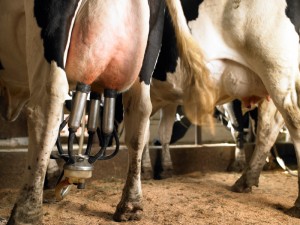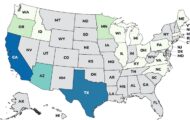The state of Indiana has rejected Senate Bill 513 and Senate Bill 610, which would have permitted raw milk sales in that state, after a report was commissioned by the Indiana Board of Animal Health. Both bills were allowed to die in committee.
 That report, titled “Indiana State Board of Animal Health Report on the Issue of Selling Unpasteurized Milk to Consumer”s, published on 11/1/2012, runs to 205 pages. In the opening statement, it reads, “there is a significant risk that raw milk may contain pathogens. Pasteurization has worked well for many years to reduce substantially the risk of human illness from pathogens that may contaminate milk. The FDA, CDC, and many other members of the public health community support required pasteurization of milk. BOAH believes taht pasteurization is a process that is highly effective in reducing the risk of human illness from pathogens in raw milk. Distributing raw milk for human consumption will increase the risk that someone will become ill from consuming raw milk.”
That report, titled “Indiana State Board of Animal Health Report on the Issue of Selling Unpasteurized Milk to Consumer”s, published on 11/1/2012, runs to 205 pages. In the opening statement, it reads, “there is a significant risk that raw milk may contain pathogens. Pasteurization has worked well for many years to reduce substantially the risk of human illness from pathogens that may contaminate milk. The FDA, CDC, and many other members of the public health community support required pasteurization of milk. BOAH believes taht pasteurization is a process that is highly effective in reducing the risk of human illness from pathogens in raw milk. Distributing raw milk for human consumption will increase the risk that someone will become ill from consuming raw milk.”
The report details the history of pasteurization, the status of raw milk consumption in this country, and food poisoning outbreaks caused by raw milk. It states that milk can be contaminated on the farm by cow feces, infection of the udder, animal diseases, bacteria on the skin of cows, bacteria in the environment, insects, rodents, and other animals, and humans. Good hygienic practices during the milking process can reduce, but cannot eliminate, the risk of pathogens in milk according to the study.
Point number three under “The Case for Pasteurization” states that the dairy farm environment is a reservoir for illness-causing organisms. No matter what precautions farmers take, they cannot guarantee that milk or products made from it are free of bacteria. In fact, even if tests are negative, the milk can still contain harmful organisms since they can cluster in some parts of the milk. And animals that carry deadly pathogens usually appear healthy.
The recommendation of BOAH is that pasteurization works to substantially reduce the risk of human illness and is highly effective. They acknowledge that the decision to authorize the sale of raw milk is a political one. If the Legislature does legalize the sale of raw milk, minimim sanitary requirements must be set, giving the Indiana State Board of Animal Health authority to impose and regulate them. And the sale of raw milk should be limited to the farmer selling directly to consumers.




